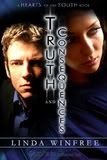Write-offs for Writers

It's not tax time. In fact, it's not even close. But at our last chapter meeting, a member who owns three small businesses with her husband, generously offered her valuable knowledge about taxes and how they can and do benefit those who take deductions. Never too soon, right?
I was very interested because I don't write my writing off. I was under the impression that I wasn't making any money, so I couldn't write anything off.
She set me straight right away...about that and about a lot of other things. So I thought I'd share those thoughts with you and hopefully, you can share your knowledge and experience in this area with us. So when April rolls around, we'll all be well ahead of the curve.
Here are some highlights:
- As a writer, you run a business—the business of writing. And as a business, you are entitled to write off expenses related to that business.
- If you treat your writing as a business, that attitude will carry over into your life and affect how you view your writing, how others view your writing and ultimately how successful you are as a writer.
- Some of those expenses may include:
o Paper
o Ink
o Office supplies
o Writing magazines (i.e., Writer’s Digest)
o Writing related subscriptions (i.e., netflix, Publishers Marketplace)
o Writing related memberships
o Craft books
o Books in your genre
o Movies
o Camera and film
o Digital recorder
o Software programs
o Travel to locations for research
o Meals during travel for research
o Mileage for auto travel for research
o Depreciation of office equipment (i.e., computer, fax, copier, camera)
The list is as personal as your writing. Anything that touches your writing life is potentially deductible. Start watching where you spend money and what you could write off your taxes…you’re giving your money away to the government if you don’t. - The home office caveat
o This is an IRS red flag for audit
o When deducting a home office, the space must be a separate room in your house.
o Several other restrictions fall in a gray area
· A bed is not allowed, but a daybed is okay.
· A closet is reportedly not allowed, but probably okay anyway
· The space cannot be used for other purposes - Keep records.
o Jodi uses Quicken, which allows her to scan her receipt for attachment to her records.
o IRS says keep your records indefinitely
o Jodi keeps hers for 10 years - Mileage
o There is a great article on deducting mileage in the July 07 RWR.
o The mileage allowance is currently 48.5 cents per mile – that adds up quickly.
o Get a mileage record book and log any driving that relates to your writing (i.e., book store, group meetings, critique partner meetings, writing location, research trips, etc.) - IRS typically allows a small business to show a loss for 3-5 years, but Jodi cites a recent case involving a racehorse owner who showed a loss for over 5 years. The IRS took her to court and lost because it was ruled that she couldn’t make her horse win (like we can’t make a house publish our book).
Moral of this story: If you can show you are actively trying to become a published writer, you have a better chance of saving yourself money in taxes for a longer period of time. - Track your writing time, including your research time. This shows a consistent work effort. (Jodi uses TraxTime—a software that allows you to punch in and out, and one that will produce reports.)
- Track your submissions and rejections and contest entries. This shows your continued efforts to become published.
- Miscellaneous points
o Everything is subjective
o Everything is arguable
o Level of deductions taken relates to a personal level of comfort
o If you are audited, only take one year of back taxes. The IRS will tell you to bring more, but by law you are only required to take one.
o According to industry professionals, the IRS audits more people in the lower economic levels and more self-employed individuals.
o Deductions have to be taken in the same calendar year as income/no-income (meaning you couldn’t deduct expenses from 2001 against income made in 2005).
Do you have anything to add here? Do you take deductions?
Labels: Joan's posts







2Comments:
When in doubt, round down. Then you'll always be just under your actual amount of expenditures. (Just in case of... *gasp* Audit. My theory, and no, I'm not a tax pro.)
I deduct almost every expense I can. Postage, paper, etc. I don't do mileage because I don't go anywhere in the name of writing, but I make sure to deduct a percentage of my internet fees. I use TurboTax online. It pretty-much does all the work. I just plug in numbers.
Smart post, and the time to start prepping - if you haven't already done so - is now. =o)
Thanks, B.E. I do have to start getting prepared -- for both recreating some expenditures for the part of the year that's passed and collecting info for the rest of the year.
Hopefully, by Dec, I'll have some sort of system in place to get myself organized for 2008.
Post a Comment
<< Home